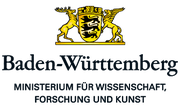Freiburg Africa Talks
Nadine Seidu, Prof. Dr. Markus Tauschek (2 May 2023) - "Erinnerungskultur und öffentlicher Raum: Kolonialvergangenheit im Kontext"
Prof. Dr. Kokou Azamede (26 April 2023) - "Die andere Schlafkrankheit: Koloniale Wissenschaft und vergessene Kollateralschäden im Gedächtnis der Bevölkerungen in Deutsch-Togo"
Prof. Albert Gouaffo, Dr. Beatrix Hoffmann-Ihde (18 October 2022) - "Freiburg und Kolonialismus: Reicht eine Ausstellung?"
Prof. Dr. Onookome Okome (25 January 2022) - "Contemporary racism and the rest of us"
Dr. Khangelani Moyo, Prof. Dr. Basile Ndjio, Azakhiwe Nocanda-Höhling, Dr. Franzisca Zanker (8 November 2021) - "African perspectives on migration research"
Dr. Linda Oucho (25 November 2020) - "Migration and COVID 19: Perspectives from Kenya"
Prof. Dr. Bénédicte Savoy (22 January 2020) - "Zurück in die Zukunft. Die Restitution afrikanischer Kulturgüter aus historischer Sicht"
Prof. Dr. Abena D. Oduro (2 July 2019) - "The gender gap in asset ownership in Ghana"
Heidemarie Wieczorek-Zeul (6 June 2019) - "Europa und Afrika: Ein Friedensprojekt auf Grundlage gemeinsamer Interessen und Werte"
Other Events
Tandem Lecture by Andreas Mehler and Zainab Musa Shallangwa - "Sustainable Development in Africa: the role of Sustainable Governance and Cultural Heritage" (30 November 2022)
Prof. Dr. Andreas Mehler - "Sustainable Governance: Globally / in Africa"
African countries have rhetorically adopted the Sustainable Development Goals of the United Nations - but concrete strategies and measures are largely absent. In this article, Andreas Mehler explains the concept and role of governance for sustainable development and discusses the preconditions for sustainable governance using examples in African countries.
PhD Zainab Musa Shallangwa - "Rites of Passage and Sustainable Development: Insights from Displaced Kanuri Traditional Societies"
In the context of internal displacement occasioned by the violent activities of the Boko Haram Insurgents in Northeast Nigeria, the research of Zainab Shallangwa underscores rites of passage for adolescents as potent and viable cultural practices that foster sustainable development in traditional Kanuri societies in Borno State, Nigeria. Previous studies have shown that a number of cultural practices have witnessed modifications and in some cases a decline, post displacement. Her research advocates for the preservation of such practices for cultural sustainability and in turn, sustainable development.
Keynote VAD Conference 2022 - Prof. Akosua Adomako Ampofo (University of Ghana) - "Benkum dware nifa, nifa dware benkum: Strategies for Sustainable Familial Intellectual Engagement" (8 June 2022)
"Africa-Europe: Reciprocal Perspectives"
Conference of the Association for African Studies in Germany (VAD) from 7-10 June 2022 at the University of Freiburg.
Keynote by
Prof. Akosua Adomako Ampofo (University of Ghana), welcome by
Prof. Andreas Mehler (University of Freiburg).
Prof. Dr. Sabelo J. Ndlovu-Gatsheni (University of Bayreuth) - "Cognitive Imperialism in African Studies: Reflections on Decolonial Turns"
The field of African Studies is imbricated in the snares of what is known as the cognitive empire, Area Studies and indeed global economy of knowledge. The departure point of this presentation is the primacy of epistemology in framing ontology in order to explain how a cognitive empire invaded the African mental universe as part of a process of introducing another knowledge and consequently shaping African consciousness in the service of colonialism and global coloniality. The key interest here is to reveal and understand how African Studies became imbricated in global imperial designs and at the same time deploying the concept of decolonial intellectual turns to map out the key moments in academic resistance to the cognitive empire and how this shaped African Studies from an Africa vantage point. While the long decolonial intellectual turn has various other turns within it, this presentation examines four of those that have directly impacted and shaped African Studies (colonial, nationalist, Marxist and postcolonial), beginning with the colonial turn that enabled the cognitive empire that continues to compromise the liberatory potential of African Studies. The turns not only help to capture complex internal ambiguities within colonialism itself, ambivalences, contestations, and contradictions in the intellectual resistance, writing and rewriting of Africa but also to flesh out the key questions underpinning the unfolding of African Studies as a field of study, ranging from that of history, development, to the implications of postcolonialism and decoloniality for Africa. The presentation concludes with reflections on resurgence and insurgence of decolonization of the 21st century and its implications for African Studies.
Research project: "De/Coloniality Now"
Zoumba - "Les Silences Du Miroir" (28 October 2021)
The award-winning Senegalese human rights activist, storyteller, writer, and teacher Pape Samba Sow "Zoumba" presents his stage play Les silences du miroir, a poetic spectacle on the search for heroines and heroes. This tale was created within the course of his Fellowship as artist in residence at the collaborative research centre SFB 948 "Heroes – Heroizations – Heroisms" in cooperation with the Africa Centre ACT of the University of Freiburg. Les silences du miroir is a poetic spectacle, a tale with music and dance, an examination of religion, memory culture and colonial heritage, a myth about the search for heroines and heroes: A curse suddenly brings misfortune to the imaginary kingdom of Ndar-on-River-and-Sea, protected by the goddess of water. Driven by superstition, the kingdom’s inhabitants consult their oracle, the mirror of time. Which hero will liberate this innocent people in the end? The historian or the artist, the politician or the warrior, the man or the woman, the believer or the atheist, the illiterate or the educated?
Opening of ACT

The official opening of the Africa Centre for Transregional Research took place virtually on May 4, 2020. All announced speakers recorded their contributions.
Keynote von Prof. Dzodzi Tsikata, Direktorin des Institute of African Studies an der University of Ghana und Mitglied des Exekutivrats vom Maria Sibylla Merian Institute for Advanced Studies in Africa (MIASA)
Prof. Dzodzi Tsikata is director of the Institute of African Studies and Professor for Development Sociology at the University of Ghana.
Her main fields of research are gender and development policies and practices; women‘s movements and gender equality activism; the politics and livelihood effects of land tenure reforms, large scale land acquisitions and agricultural commercialisation; and informal labour relations and conditions of work.
Keynote von Prof. Dr. Horst Köhler, Bundespräsident a.D.
Prof. Dr. Horst Köhler (CDU) was the German Federal President from 2004-2009. Before, he was state secretary at the Ministry of Finance and Executive Director of the International Monetary Fund (IMF) i.a.
Both at the IMF and as the Federal President, he advocated greater engagement and a stronger partnership with the African continent.
Eröffnung und Grußwort von Prof. Dr. Dr. h.c. Hans-Jochen Schiewer, ehem. Rektor der Universität Freiburg
Prof. Dr. Dr. h.c. Hans-Jochen Schiewer is the former rector of the University of Freiburg.
He studied German philology and history and habilitated in German philology. His main field of research is the German medieval studies.
Grußwort von Theresia Bauer, Landesministerin für Wissenschaft, Forschung und Kunst
Theresia Bauer (Bündnis 90/Die Grünen) has been a member of the Baden-Württemberg state parliament since 2001 and State Minister for Science, Research and the Arts since 2011.
She studied political science, economics and German philology, and was speaker for political education at the society for political ecology, as well as director of the Heinrich-Böll-Foundation Baden-Württemberg.
Grußwort von Martin Horn, Oberbürgermeister der Stadt Freiburg
Martin Horn has been the mayor of the city of Freiburg since 2018.
He studied international social work as well as European and World Politics and completed studies abroad in Botswana, Jordan, Georgia, Russia, and the Ukraine.







